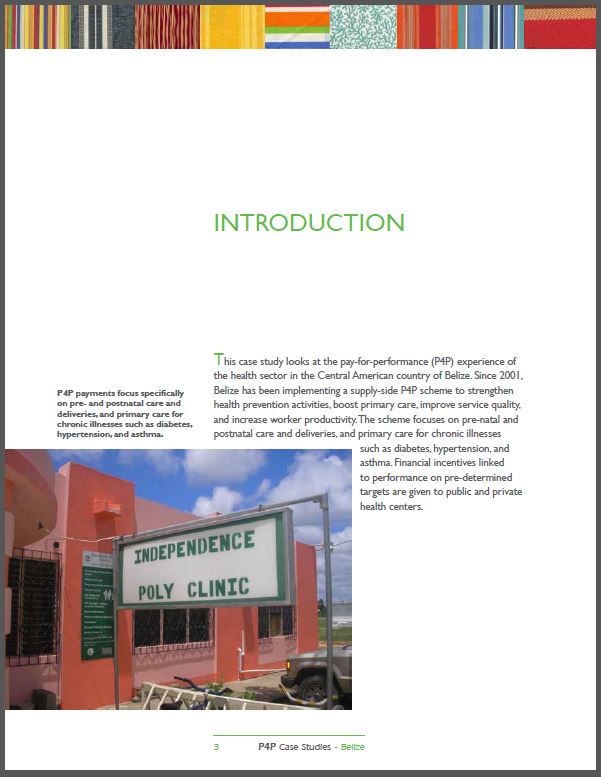Using Supply-side Pay for Performance to Strengthen Health Prevention Activities and Improve Efficiency: The Case of Belize
Categories: Health Insurance (CBHI, SHI), Human Resources for Health, Publications
 Resource Type: Case Study
Resource Type: Case Study
Authors: Michelle Vanzie, Natasha Hsi, Alix Beith, and Rena Eichler
Published: 7/23/2010
Resource Description:
Supply-side pay for performance (P4P) in Belize consists of monthly capitation payments, discounted based on achievement of monthly performance indicators by contracted public and private primary health care clinics, plus annual performance awards to the clinics. The goal of the scheme is to increase access, improve the quality of services, and enhance the productivity of health care workers. The scheme specifically focuses on pre- and postnatal care and deliveries, and primary care for chronic illnesses such as diabetes, hypertension, and asthma. Belize’s National Health Insurance (NHI) administers the P4P scheme and the Ministry of Health determines policies that include defining the packages of services and licensing and accrediting health facilities.
The program started as a pilot in 2001 and currently covers 40 percent of the population. Scheme managers are considering a shift from rewarding process and some output measures to rewarding output and outcome measures. However, support for the scheme by political leaders is weakening and hence, its future is unclear. This case study describes P4P implementation through the NHI and Social Security Board and offers lessons for countries that are considering implementing similar NHI-led schemes.
Download Now



